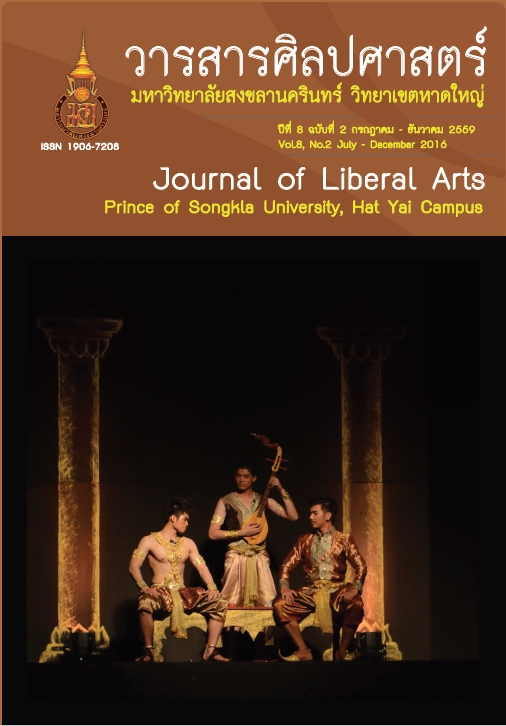The outcomes of Problem - Solving Skills for Bullying in the Upper Primary school Students
Keywords:
problem-solving, social skills, bullyingAbstract
This research aimed to 1) analyze social skill problems experienced by upper primary school students; 2) develop a problem-solving program for the target group, and 3) compare the students' ability of social problem-solving skills before and after participating in the program. Thirty three out of two hundred and sixty grade five students of Tha-it Municipal School, Uttaradit Province, were selected as a sample through purposive sampling. The students were assigned to explore their experience of social skill problems. The 'bullying' problem, the highest score of social skill problems was used for further study through an analysis with theories and literature which resulted in a development of the problem-solving program. The program was used for training the students in dealing with bullying problem solving skills. The students' ability before and after participating in the program was then compared.
The findings were as follows: 1) the “bullying” was the highest score of social skill problems. 2) The developed program was characterized as
1.1) encouraging the students using the four problem-solving processes including addressing the problem, identifying the cause of the problem, selecting the appropriate problem-solving methods, and conducting social problem-solving methods and then evaluating the outcomes;
1.2) encouraging the students to use the program when dealing with physical and psychological bullying problems. 1.3) promoting the students to acknowledge and understand the preventative methods including assertiveness, resilience and seeking help/guidance from peers, teachers or the witness; and 1.4) the techniques used in the program include role play, model, and activities. 3) By comparison, the student’s problem-solving ability scores after training were significantly higher than those before training.
Downloads
Published
How to Cite
Issue
Section
License
Copyright (c) 2017 วารสารศิลปศาสตร์ มหาวิทยาลัยสงขลานครินทร์ วิทยาเขตหาดใหญ่ (Journal of Liberal Arts Prince of Songkla University Hat Yai)

This work is licensed under a Creative Commons Attribution-NonCommercial-NoDerivatives 4.0 International License.
The authors retain the copyright to their article but the Journal of Liberal Arts, Prince of Songkla University reserves the exclusive rights to first publication.






